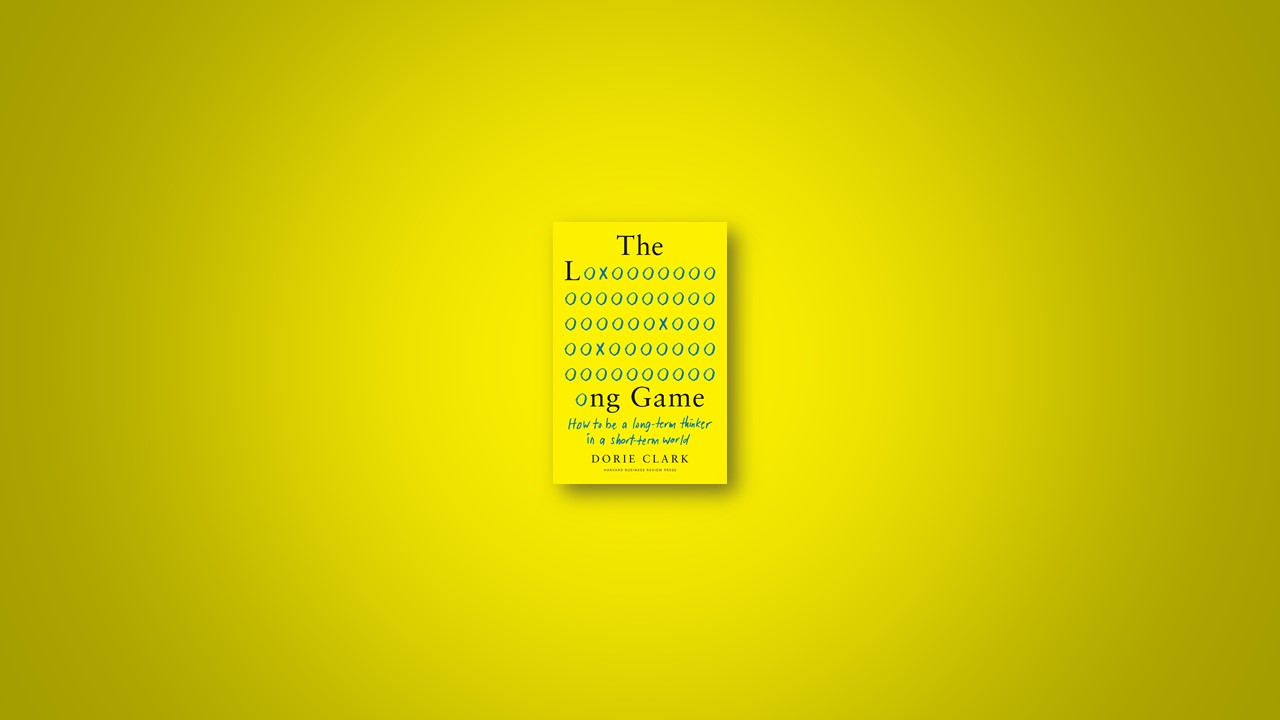Kindle | Hardcover | Audiobook
The Real Reason We’re All So Busy
Of course you’re busy. But studies show that looking busy can also be a way of increasing your social status (“I’m important!”) or a distraction from asking uncomfortable questions. Sometimes, we’re unconsciously doing this to ourselves.
Think about reframing what it means for people to be busy. The less we see it as “They’re in demand,” and the more we see it as “They don’t even have control over their own schedules,” the less appealing it will be.
Schedule and set limits around your true priorities. Work could theoretically expand to fill all the time you have—so instead, put firm boundaries around it.
Saying No (Even to Good Things)
Early in your career, saying yes is a great strategy, because you have plenty of time and you never know which connections will turn out to be valuable. But as you advance professionally and get busier, you have to start saying no more often.
Most of us can identify great—or terrible—opportunities. It’s the middling ones that are harder. Push yourself to say yes only to things you’re excited about.
Decide what to be bad at. You can’t do it all. In order to be great at something, accept that you’ll be terrible at something else. Refusing to make that choice leads to mediocrity.
A great way to triage requests for your time is to ask people for more information. Many won’t bother to follow up, and you’ll quickly discover that others haven’t done their homework properly, and you can weed out their requests.
Four questions can help you determine whether something is worth doing:
– What is the total time commitment?
– What is the opportunity cost?
– What’s the physical and emotional cost?
– Would I feel bad in a year if I didn’t do this?
Setting the Right Goals
The default in our culture is to optimize for money and choose a lucrative career. Often, the only other alternative that gets talked about is optimizing for meaning—but not everyone is clear yet on what’s meaningful to them.
One possibility is to “optimize for interesting” and follow your curiosity. Ask yourself:
– What am I already doing that I enjoy? Look at how you already spend your time voluntarily, which is a strong indicator of genuine interest.
– Why did I start on this path? Think about your original motivations for pursuing your field or interests, and reconnect with them.
– How can I tune out others’ judgments? Not every experience or path has to be linear. Just because something isn’t the established path doesn’t mean it’s the wrong one.
– What kind of person do I want to be? Identify experiences that will help you grow into that.
– How can I think bigger? Don’t be constrained by what’s possible now. Think about where you’d like to be in the future.
Time to Explore
No one is going to hand you development opportunities on a platter. You need to seek them out proactively.
Think about devoting 20% of your time to explore new areas. It’s enough time to get a meaningful sense of whether you enjoy something and whether it has the potential to be impactful, but not so much of an investment that you’d be destroyed if it didn’t work out.
The best time to test out new ideas is when you’re in a strong position—not when you’re in a weakened one and are desperate to find the “next thing.” Start planning now!
Ask yourself: “How can I win, even if I lose?” In other words, even if the bet you place with your 20% time doesn’t work out, are there other benefits you can derive that are still valuable (for instance, building your network or gaining new skills)?
Think in decades. If everyone else is thinking a few months or a few years out, you can create a massive competitive advantage for yourself if you’re willing to go slow—and perhaps ride out short-term losses or setbacks—in order to achieve much bigger things over a period of ten years or more.
Think in Waves
To get more done, alternate between heads-up and heads-down modes. During the former, you’re actively seeking connections and exploring new possibilities. During the latter, it’s time to focus and execute.
You can’t do it all—at least, not all at once. Instead, follow the Career Waves, in which you sequence between:
– Learning. Study your field so you become knowledgeable.
– Creating. Now that you have experience, give back by creating and sharing what you’ve learned.
– Connecting. Begin leveling up your connections with others in your field, so you can learn from them and contribute as part of the community.
– Reaping. You’re at the top of your field, and it’s time to enjoy the benefits of your hard work.
Remember: don’t stop learning. Soon, it’ll be time to start the cycle over again so you don’t stagnate.
The Right People, the Right Rooms
There are three types of networking:
– Short-term networking, when you need something fast, like a job or a client. This is the type most likely to fall into the trap of using people, so do it sparingly and only with people you already have close relationships with.
– Long-term networking, where you develop relationships with interesting people whom you admire and enjoy. These people may be potentially helpful to you in the future, but in indeterminate ways.
– Infinite horizon networking, in which you build relationships with fascinating people in diverse fields that, on the surface, probably can’t help you at all. You’re building the connection out of pure interest in them as a person—and over time, who knows? Your paths may converge in surprising ways.
No asks for a year. Avoid asking new connections for any kind of meaningful favor for at least a year, to take the pressure off the relationship and to ensure they’re clear that you’re not making friends just to take advantage of them.
When you join a group, go all in. Choose a handful of organizations where you can go deep, reaching out to fellow members and building connections. As your peers, they’re more likely to respond positively to your overtures.
Every relationship has to be reciprocal. If someone is more powerful or has more status than you, it might feel like you have nothing to offer. Get creative. It really is using someone when all you want is to take from them, so think hard about what you can offer in the relationship, and make it your job to keep digging until you can find it.
Strategic Patience
To gain notice in your field, it often takes two to three years of effort before you see any results. At that point, you’ll often start to see “raindrops”—small, intermittent signs of progress.
To truly become a recognized expert, it often takes at least five years of consistent effort.
When things seem bleak, reconnect with your purpose and your strategy by asking yourself:
– Why am I doing this?
– How has it worked for others?
– What do my trusted advisers say?
Rethink Failure
You need to be excellent at what you do. But you also need at bats, because random chance means that even excellent performers will “fail” sometimes. You have to give yourself multiple chances to succeed, because over time, if you’re truly top-notch, you will.
Test out concepts and ideas in small ways before investing fully. That way, if something doesn’t work, it’s not failure—it’s an experiment, and you learned something valuable from it.
Always think broadly and identify multiple paths to your goal. One might not work out, but there are almost always other possibilities.
Try to adapt plans that didn’t work out. Are there alternative ways you can leverage the connections you made, the time you put in, or the work you created?
To make success more likely, always put a date on the calendar and involve others in your plan. That enhances your level of seriousness and commitment.
Reap the Rewards
We can train ourselves to be long-term thinkers using the following strategies:
– Get started in a very small way. Any goal can feel overwhelming if you look at it in its totality. But you’ll create positive momentum if you start small and can see your success build.
– Understand what it really takes to accomplish your goals. Too many people get discouraged that they’re not progressing faster, simply because they never took the time to ask questions or discover how long it’s taken others to succeed. Develop a clear picture first so you can pace yourself and set realistic goals.
– Setting constraints on the time you spend at work will, paradoxically, make you more efficient. You’ll be forced to devise better systems and processes to manage your workflow.
– If you plan with a longer horizon than everyone else, and you’re willing to endure the ups and downs along the way, you’ll be able to accomplish far more than others—or even you—imagined.
Three Keys to Becoming a Long-Term Thinker
There are three habits of mind worth cultivating on your journey as a long-term thinker.
Independence. At its heart, long-term thinking is about staying true to yourself and your vision. In our society, there’s so much pressure toward short-term people-pleasing: saying yes to one more commitment because you don’t want to let someone down, or taking the “great job” that everyone else admires but that leaves you feeling dead inside. When you act for the long term, it can be quite a while before that pays off—and if you’re looking outside yourself for validation, the wait can be devastating.
Curiosity. Some people are content to live their lives according to the road map that others have laid out for them, never questioning or pondering alternatives. But for many of us, a lifetime of coloring inside the lines can feel hollow, especially if our interests don’t align with what society valorizes. We may not know the exact right path for ourselves (who does, at first?), but one quality that can lead us to it is curiosity. By noticing how we choose to spend our free time and understanding whom and what we find fascinating, we can pick up clues about what lights us up—and where, eventually, we can begin to make our contribution.
Resilience. Doing something new, something unique, is by definition experimental. You have no idea if it’ll work or not—and oftentimes, it won’t. Too many of us experience rejection or failure and immediately recoil, assuming that the editor who turned us down was the definitive arbiter of taste, or that the university that rejected us obviously knew what it was doing. But that’s simply not true. Chance, luck, and individual preference play a massive role in how situations play out
We all have the capability to hone our skills, develop new techniques, and become better long-term thinkers. It’s my hope that this book has provided you with strategies you can use to start the journey—and even more important, to persevere so that you arrive at the exact destination you want.



